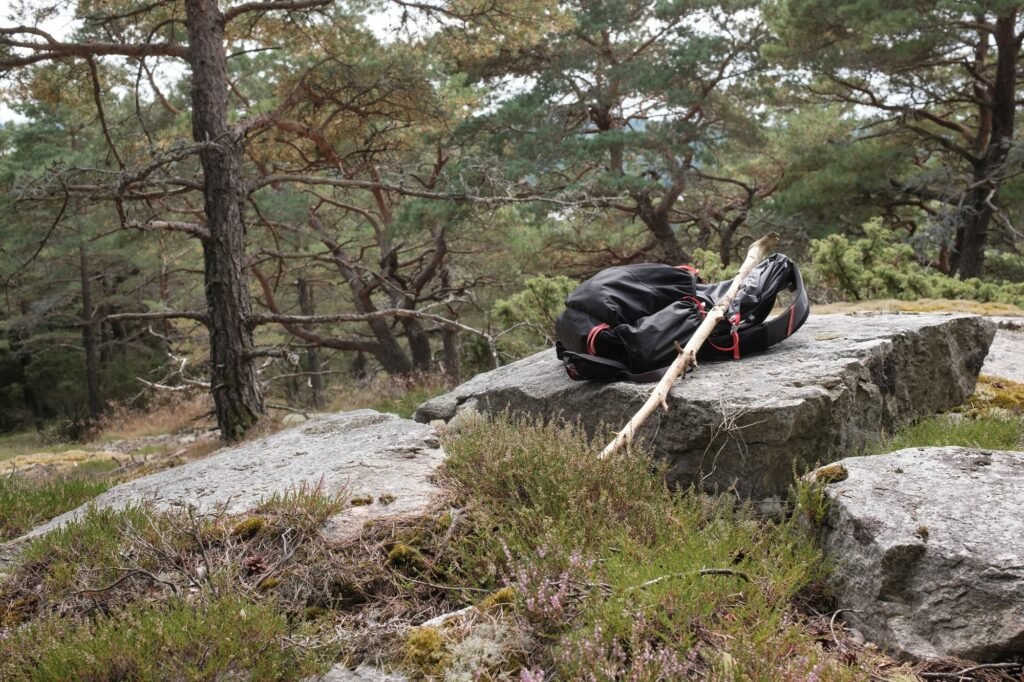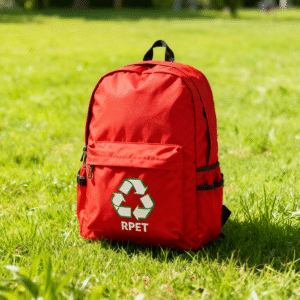As a backpack manufacturer, we often encounter customers asking for backpacks for different purposes and user groups. Now is the time when the weather is warming up and everything is reviving, which is suitable for camping, hiking, picnics, mountaineering, and cycling. So we analyze several types of backpacks from the perspective of capacity, outdoor activity cycle, and comfort to save you time.
1. Day Hiking Backpacks (20-30L)
Core advantages:
- Lightweight design: average weight 0.8-1.5kg, suitable for short-distance activities, reducing shoulder burden.
- Breathable carrying system: such as Osprey’s AirSpeed™ airspeed backboard and Gregory’s mesh breathable structure, which effectively wicks away sweat and keeps the back dry.
- Multi-functional compartment: independent water bag compartment, external trekking pole/ice axe design, convenient for quick access to equipment.
Disadvantages:
- Capacity limitation: cannot meet the needs of multi-day camping, and needs to be matched with other equipment bags.
- Durability compromise: In order to reduce weight, some models use thinner fabrics (such as 210D nylon), which are easily scratched by branches.
Applicable scenarios: one-day hiking, urban outings, lightweight mountaineering.
Manufacturing suggestions: Use wear-resistant reinforced fabrics (such as 530D nylon) on the shoulder straps and the bottom of the bag to balance lightness and durability.
2. Multi-Day Expedition Backpacks (50–70L)
Core advantages:
- Large capacity and load capacity: can carry 20-30kg of equipment, suitable for 5-7 days of long-distance hiking, with built-in layered storage system.
- Professional carrying system: such as Gregory’s Response A3 fitted backboard and Osprey’s AG anti-gravity belt, which disperses weight to the hips and reduces shoulder pressure.
- Expandability and protection: standard rain cover and wear-resistant bottom (such as Thule’s 100D nylon) are suitable for complex terrain.
Disadvantages:
- Heavy weight: The weight of the empty bag generally exceeds 2kg, and lightweight users may find it cumbersome.
- Volume limitation: Too large capacity may cause loose packing, and equipment needs to be fixed with external straps.
Applicable scenarios: multi-day camping, high-altitude mountaineering, heavy-load hiking.
Manufacturing suggestions: Adopt partitioned modular design (such as detachable top bag to waist bag) to enhance flexibility.
3. Ultralight Backpacks (≤30L)
Core advantages:
- Extremely lightweight: Using ultra-light materials such as Dyneema Composite Fabric (DCF), the weight of the empty bag is as low as 0.5kg.
- Waterproof and durable: Composite fabrics such as X-pac take into account waterproofness (IPX7 level) and tear resistance.
Disadvantages:
- Insufficient comfort: Lack of hard backboard, carrying more than 10kg can easily cause shoulder pain.
- High cost: Materials such as Dyneema are expensive, and the price is 2-3 times that of ordinary backpacks.
Applicable scenarios: ultra-lightweight hiking, fast traverse (FKT), minimalist camping.
Manufacturing suggestions: Optimize the external hanging system (such as side elastic ropes to fix the egg tank pad) to reduce the pressure on the main compartment .

4. Convertible Backpacks
Core advantages:
- Outstanding portability: can be folded into the size of a palm, suitable as a spare bag or temporary storage.
- Multi-mode switching: such as waist bag, messenger bag, backpack can be freely converted to adapt to different scenarios.
Disadvantages:
- Single functionality: few compartments, simple carrying system, poor comfort for long-term use .
- Material restrictions: mostly thin nylon, weak wear resistance and waterproofness.
Applicable scenarios: one-day tours, city travel, emergency backup.
Manufacturing suggestions: add waterproof coating and reinforced stitching to improve durability.
5. Technical Packs (Climbing/Cycling)
Core advantages:
- Targeted design: rock climbing bags have many external attachment points, cycling bags have good fit and reduce shaking.
- Quick access structure: such as the waterproof zipper of the front pocket of the ARC’TERYX messenger bag, which is easy to operate with one hand.
Disadvantages:
- Low versatility: optimized for specific sports, inconvenient for daily use.
- High price: technical patents (such as thermoplastic belts) push up costs.
Applicable scenarios: rock climbing, cycling, technical mountaineering.
Manufacturing suggestions: modular accessories (such as detachable shoulder straps) to expand daily use scenarios.
Comparative Summary
| Type | Weight | Capacity | Durability | Ideal Use Cases |
|---|---|---|---|---|
| Day Hiking | 0.8–1.5 kg | 20–30L | Moderate | Day trips, light excursions |
| Multi-Day Expedition | 2–3 kg | 50–70L | High | Alpine trekking, long hauls |
| Ultralight | 0.5–1 kg | ≤30L | Variable | Fastpacking, minimalist trips |
| Convertible | 1–2 kg | 25–40L | Moderate | Urban travel, hybrid adventures |
| Technical | 1–2 kg | 15–25L | High | Climbing, cycling, tactical missions |
Key Considerations
- Environmentally friendly materials: such as recycled polyester fiber (Osprey Earth series), recyclable Dyneema, to meet the needs of sustainable consumption.
- Intelligent integration: adding USB charging ports and anti-theft zippers (such as Winpard anti-theft bags) to improve convenience.
- Gender-differentiated design: For example, the Osprey women’s Elf series optimizes the fit of the belt to solve the problem of slipping when carrying for female users



